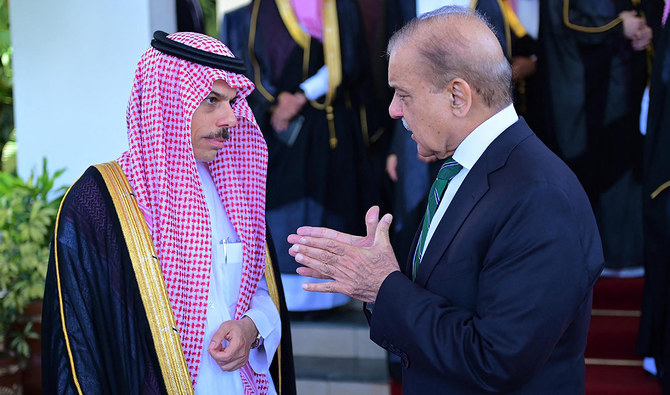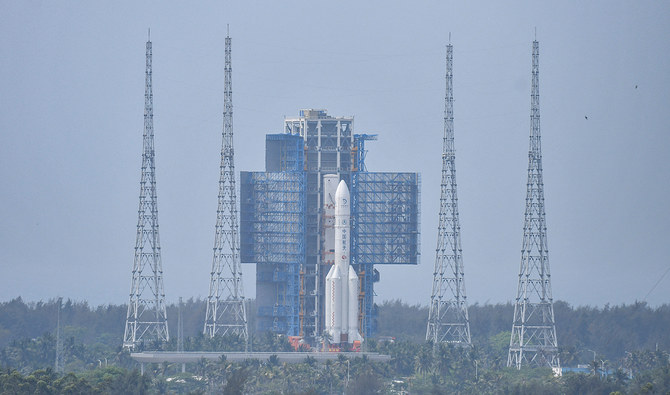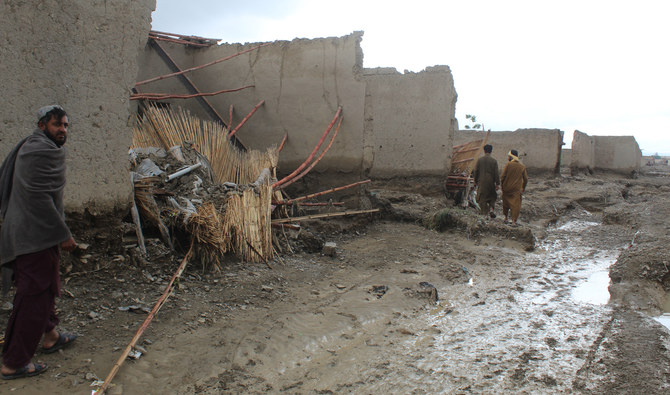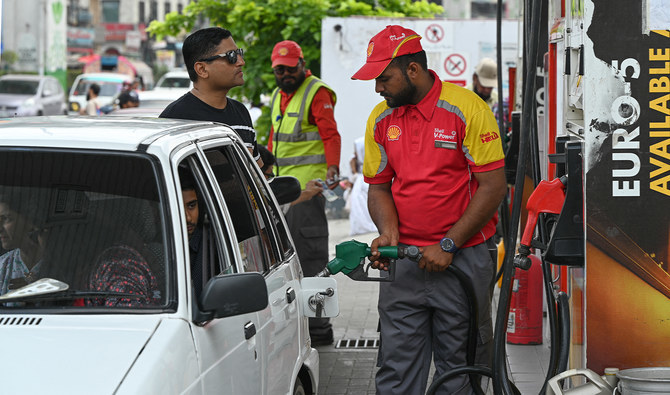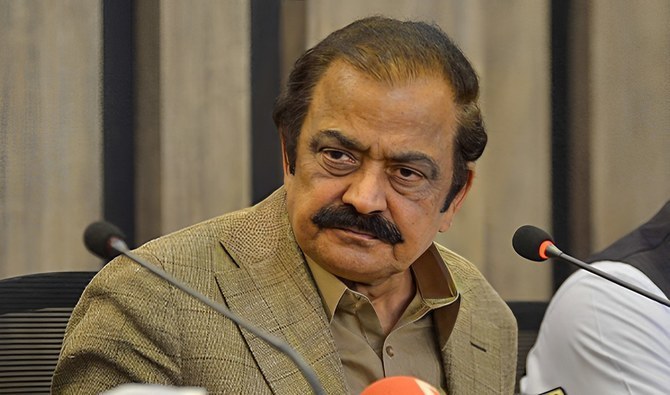RIYADH: Saudi Foreign Minister Faisal bin Farhan Al Saud’s visit to Pakistan this week is part of “concerted efforts” to close investment deals that have been under discussion between the two nations in recent years and also discuss new areas of cooperation, Islamabad’s envoy to Riyadh Ahmed Farooq has said.
Prince Faisal arrived in Pakistan on Monday on a two-day visit aimed at enhancing bilateral economic cooperation and pushing forward previously agreed investment deals. His trip came a little over a week after Crown Prince Mohammed bin Salman met Prime Minister Shehbaz Sharif in Makkah and reaffirmed the Kingdom’s commitment to expedite investments worth $5 billion.
Pakistan and Saudi Arabia enjoy strong trade, defense and cultural ties. The Kingdom is home to over 2.7 million Pakistani expatriates and the top source of remittances to the cash-strapped South Asian country.
Speaking to Arab News on Tuesday, Ambassador Farooq said during Sharif’s recent meeting with the Saudi crown prince, it was decided that the Kingdom would expand its collaboration with Pakistan across various sectors. Both countries also agreed on a roadmap for expediting investments from Saudi Arabia into strategic sectors of the Pakistan economy.
“Guided by this clear direction of the leadership, the economic teams of the two countries are now in advance talks to finalize partnership proposals in diverse sectors such as energy, renewables, connectivity, mining, agriculture, information technology, construction, human resource development and export and strategic investments,” Farooq said.
“Concerted efforts are underway to close the deals that have remained under discussion in recent years, while identifying new areas of cooperation.”
It was as part of such efforts that Prince Faisal visited Pakistan, the ambassador added, accompanied by a team of top officials across Saudi ministries.
“The size and rank of the visiting delegation showed the keenness with which the Kingdom is pursuing economic engagement plans with Pakistan,” Farooq said.
Among key highlights of the visit, apart from bilateral meetings between the economic teams, was a special interactive session organized by the newly established Special Investment Facilitation Council (SIFC), set up last year to oversee all foreign investments in Pakistan.
“Several short, medium, and long-term projects were discussed in the dedicated sector-wise breakout sessions,” the envoy said. “The Saudi delegation was also briefed about the specific legal, procedural and administrative reforms undertaken by Pakistan in recent months to attract and facilitate foreign investments in key sectors of the economy.”
“BEDROCK OF SUPPORT”
Cash-strapped Pakistan desperately needs to shore up its foreign reserves and signal to the International Monetary Fund (IMF) that it can continue to meet requirements for foreign financing that has been a key demand in previous bailout packages. Pakistan’s finance minister, Muhammad Aurangzeb, is currently in Washington to participate in spring meetings of the International Monetary Fund and World Bank and discuss a new bailout program. A $3 billion ongoing loan deal expires this month.
Saudi Arabia has often come to cash-strapped Pakistan’s aid in the past, regularly providing it oil on deferred payments and offering direct financial support to help stabilize its economy and shore up its forex reserves.
“For Pakistan, Saudi Arabia has remained a bedrock of support,” Farooq told Arab News when asked about cooperation between the two nations.
“The kingdom has always supported Pakistan and provided much needed economic support and assistance. Kingdom has also played a critical role in helping us with international financial institutions.
“Even today, the Kingdom has a central role in the future economic plans of Pakistan. The new government in Pakistan has a strong desire to attract Saudi investment – both from the public and private sectors – to usher in a new era of economic growth and development.”
Farooq said the Saudi leadership was also keen on seizing this opportunity and further enhancing economic, political and security cooperation with Pakistan.
He said there were many areas for future collaboration including energy, renewables, IT, mining, agriculture, construction, and human resource development and export.
Asked about how investment between the two nations could be further enhanced, Farooq said Pakistan had created SIFC to act as a one window operation to facilitate Saudi and other foreign investments.
“It is tailor made for this purpose,” he added. “We are developing a lot of projects across all sectors of the economy in which the Saudi public and private sector can invest.
The Kingdom has shown great keenness and desire to work with Pakistan and realize these projects. I am confident that we will soon see a lot of investment going from Saudi Arabia into Pakistan.”



